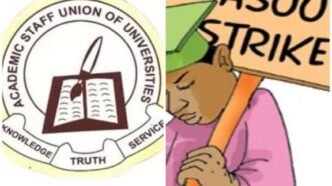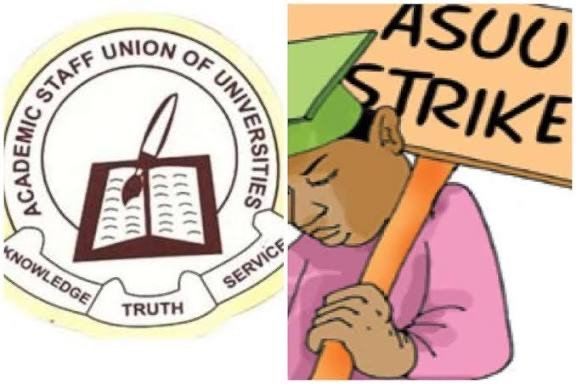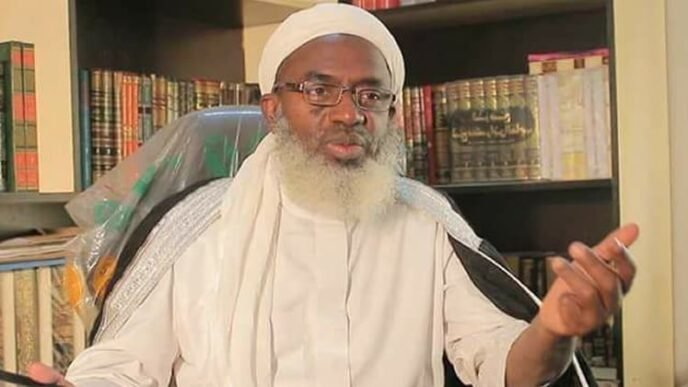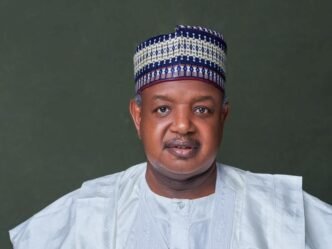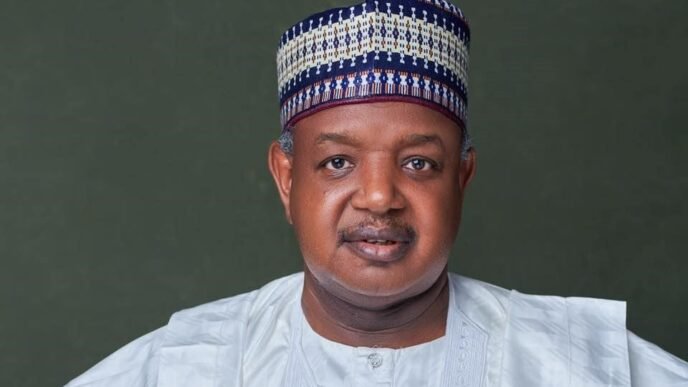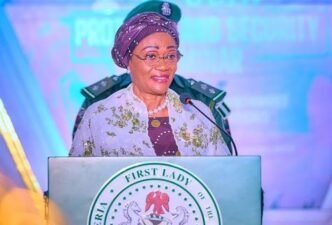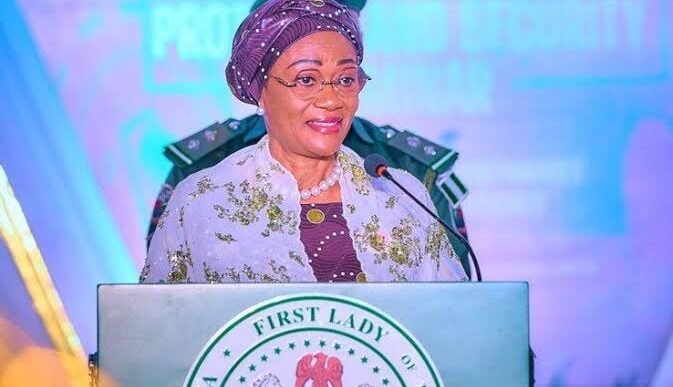The Academic Staff Union of Universities (ASUU) has begun a two-week warning strike across Nigerian public universities, following the expiration of its two-week ultimatum issued to the Federal Government to address unresolved issues concerning the welfare of lecturers and the revitalization of tertiary institutions.
The announcement was made on Sunday evening by Prof. Chris Piwuna, the National President of ASUU, during a press briefing held at the University of Abuja. The union’s decision marks the resurgence of industrial action in Nigeria’s higher education system, raising concerns about the possible disruption of the 2024/2025 academic calendar.
According to ASUU, the strike, which officially began Monday (today), is intended to serve as a warning shot to the government to demonstrate the seriousness of the union’s grievances and to compel action on its longstanding demands.
Background: ASUU’s Grievances and the Expired Ultimatum
ASUU had on September 29, 2025, issued a two-week ultimatum to the Federal Government to fulfill pending agreements and address unresolved issues dating back several years. These include the renegotiation of the 2009 ASUU-FGN Agreement, unpaid Earned Academic Allowances (EAA), the release of withheld salaries from previous strikes, and improved funding for universities.
Despite the ultimatum, government negotiators reportedly failed to present any concrete offers or timelines for resolution. Consequently, the union’s National Executive Council (NEC) convened over the weekend to review the situation and decided to embark on a warning strike after what members described as the government’s continued indifference.
Prof. Piwuna stated that the strike was unavoidable due to the government’s failure to honor its commitments despite multiple meetings and assurances.
“We have exhausted all avenues for dialogue. The government has failed to demonstrate seriousness in addressing our demands. This warning strike is our way of saying enough is enough. We cannot continue to work under these deplorable conditions,” he said.
A Renewed Standoff in Nigeria’s University System
The renewed standoff comes amid ongoing negotiations aimed at preventing another prolonged shutdown of public universities. Last Wednesday, the Minister of Education, Dr. Tunji Alausa, told journalists in Abuja that the government had entered the final phase of discussions with ASUU and other university-based unions, including the Senior Staff Association of Nigerian Universities (SSANU) and the Non-Academic Staff Union of Universities (NASU).
Dr. Alausa expressed optimism that the talks would yield positive results, emphasizing that President Bola Tinubu’s administration was committed to resolving the lingering issues in the education sector once and for all. However, ASUU’s decision to proceed with the strike suggests that the negotiations either stalled or failed to produce tangible progress.
Key Issues at the Heart of ASUU’s Demands
The dispute between ASUU and the government centers around a series of unfulfilled commitments, particularly those contained in the 2009 Agreement, which outlines improved salaries, better working conditions, and increased funding for universities.
1. Funding and Revitalization of Universities
ASUU has consistently demanded that the government increase funding to public universities to address infrastructural decay and improve learning conditions. Many institutions continue to suffer from inadequate classrooms, laboratories, and research facilities.
The union argues that without proper funding, Nigeria’s universities cannot compete globally or meet the standards required for innovation and national development.
2. Implementation of the 2009 Renegotiated Agreement
The 2009 agreement was designed to improve staff welfare, review salary structures, and ensure regular review mechanisms. Although subsequent administrations have pledged to implement it, ASUU insists that the majority of the provisions remain unfulfilled more than a decade later.
3. Earned Academic Allowances (EAA)
ASUU members are also demanding the full payment of their Earned Academic Allowances, which are meant to compensate lecturers for extra academic responsibilities, including supervision and research. While some payments were made in the past, the union maintains that several years of arrears remain outstanding.
4. Withheld Salaries and the ‘No Work, No Pay’ Policy
A major sticking point has been the government’s decision to withhold salaries of lecturers during the eight-month strike in 2022 under the administration of former President Muhammadu Buhari. Despite appeals, the withheld wages have not been fully restored.
President Tinubu had earlier approved the release of four months of withheld salaries, but ASUU insists that full payment is essential for restoring trust between the union and the government.
5. University Autonomy and the IPPIS Controversy
Another contentious issue is the Integrated Personnel and Payroll Information System (IPPIS), a centralized payment platform introduced by the Federal Government. ASUU argues that IPPIS undermines university autonomy and has led to irregular salary payments, especially for academics on sabbatical or research leave.
The union developed an alternative platform, University Transparency and Accountability Solution (UTAS), which it claims better suits the peculiarities of university operations.
Government’s Position: Seeking Lasting Peace
The Federal Government maintains that it remains committed to resolving the dispute in a sustainable way. Education Minister Dr. Alausa reiterated that the Tinubu administration had made significant progress in addressing sectoral challenges through the Education Revitalization Fund, staff welfare reviews, and ongoing engagements with university unions.
He urged ASUU to show understanding and avoid actions that would further disrupt academic activities, especially after years of instability in the tertiary education system.
“We recognize ASUU’s concerns, and the government is working round the clock to ensure that the promises made are kept. Strikes only set us back and harm our students. We appeal to the union to continue engaging in dialogue,” Alausa said.
However, ASUU leaders argue that dialogue without implementation has become a recurring pattern, with successive administrations making promises that never materialize.
Impact on Students and Academic Calendar
The two-week strike, though described as a “warning,” has already triggered anxiety among students and parents. Many undergraduates expressed frustration over the constant interruptions to their education.
At the University of Lagos, students who had resumed for examinations said they were uncertain about the schedule. “We were supposed to start exams this week, but now everything is on hold again. It’s really discouraging,” said Aisha Bello, a 300-level student.
Academic and administrative activities have also been suspended in several universities, including Ahmadu Bello University, Zaria, Obafemi Awolowo University, Ile-Ife, University of Nigeria, Nsukka, and University of Benin.
Possible Outcomes and Next Steps
ASUU officials have clarified that the warning strike is not indefinite and that the union remains open to negotiations. However, if the government fails to meet its demands within the two-week period, the union may escalate to a full-blown nationwide strike, potentially crippling the public university system once again.
Observers note that the Federal Government faces a delicate balancing act, as prolonged industrial actions often have ripple effects on other sectors, including labor relations and youth unemployment.
Policy analysts also warn that repeated strikes are eroding confidence in Nigeria’s public universities, driving students toward private and foreign institutions — a trend that contributes to capital flight and educational inequality.
Public Reactions and Stakeholder Opinions
Stakeholders across the education sector have expressed mixed reactions. The National Association of Nigerian Students (NANS) urged both ASUU and the government to prioritize dialogue and avoid actions that would extend students’ academic years.
Civil society groups have also called for greater accountability in managing university funds, urging the government to implement previous agreements transparently.
“It is time for both sides to break the cycle of strikes and unfulfilled promises. Nigeria cannot afford another year of disrupted education,” said Dr. Ifeoma Nwokolo, an education policy analyst.
Conclusion: A Familiar Crisis in Need of Resolution
The renewed ASUU strike underscores a recurring crisis in Nigeria’s education sector — one characterized by unfulfilled agreements, inadequate funding, and mistrust between the government and university unions.
As the two-week warning strike takes effect, students, parents, and education stakeholders hope that both parties will use the window to achieve a lasting resolution. The coming days will determine whether the warning strike ends in compromise or escalates into another prolonged shutdown of Nigerian public universities.
For now, the classrooms remain empty, the campuses quiet, and the future of millions of Nigerian students once again hanging in the balance.

